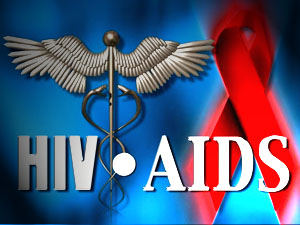'India needs to commit more to fight HIV/AIDS'
 New Delhi, Oct 2 Some African countries like Kenya and Uganda are unable to sustain their HIV and AIDS prevention programmes due to the global economic recession and India should take lessons from that as it is home to the world's third largest HIV population after South Africa and Nigeria, says a UN official.
New Delhi, Oct 2 Some African countries like Kenya and Uganda are unable to sustain their HIV and AIDS prevention programmes due to the global economic recession and India should take lessons from that as it is home to the world's third largest HIV population after South Africa and Nigeria, says a UN official.
"India has been doing a really great job. But the HIV prevention programmes should continue and the money should be available. It is not at all a cheap programme. There is a shortage of funds from international donors due to the global economic recession," Charles Gilka, UNAIDS country coordinator for India, told IANS here.
"The economic meltdown has not had much impact on India. India has a strong economy. But lessons could be learned from the way Africa has been badly hurt. The financial crunch is hitting the prevention programmes in some African countries like Uganda and Kenya. So India cannot be complacent in its approach to fighting HIV and AIDS," Gilka said.
"In these African countries HIV and AIDS programmes were highly successful. But as they get funds from Global Fund and the US government, they could not sustain or expand their programmes because of funds shortages. These countries are now facing problems in carrying out their prevention programmes or providing treatment for new patients," he said.
"But India is not in this position so far. The prevention, care and support programms need continued political and financial support of the Indian government. India needs to commit more. The programmes are yielding results and so more focus is needed," he added.
Approximately 5.2 million people in South Africa and 2.6 million in Nigeria suffer from HIV/AIDS, followed by 2.3 million in India.
According to UNAIDS, there were around 33 million HIV positive people globally, while there were 2.7 million new infections and 2.0 million deaths from AIDS in 2007.
The National AIDS Control Organisation (NACO), which forms policy and implements programmes for the prevention and control of HIV and AIDS in India, under its national AIDS Control Programme 2007-2012, has a budget of Rs. 11,585 crore ($2.4 billion), of which Rs. 2,861 crore is invested by the Indian government -- nearly 25 percent of the total.
Gilka, who joined as the India head in November 2008, said that due to the global recession, the funds have been either frozen or are going down. "This poses a threat to successful HIV and AIDS programmes in the world.
"Most of the programmes are externally funded and as the financial help is drying up and priorities are changing, there is a global threat that spotlight could shift from HIV and AIDS."
He said UNAIDS Executive Director Michel Sidibe is visiting India for three days from Oct 7 and will stress on the need for continued and sustained support to the HIV and AIDS prevention programme by the Indian government.
Sidibe, who is also Under Secretary-General of the United Nations, is likely to meet Prime Minister Manmohan Singh, who is head of the National Council on AIDS formed in 2005 with the aim to monitor public health agencies' progress on preventing the spread of HIV in India.
He will also meet Oscar Fernandes, who heads the Parliamentarians' Forum on HIV/AIDS.
"His (Sidibe's) visit will focus on the need for sustained support to the programmes by the Indian government," Gilka said.
"If finances are not available for fighting HIV and AIDS, there is a fear that the epidemic might return. Globally, so much money has been spent. All this could be a waste and many lives will be lost if we become complacent now," he added. (IANS)